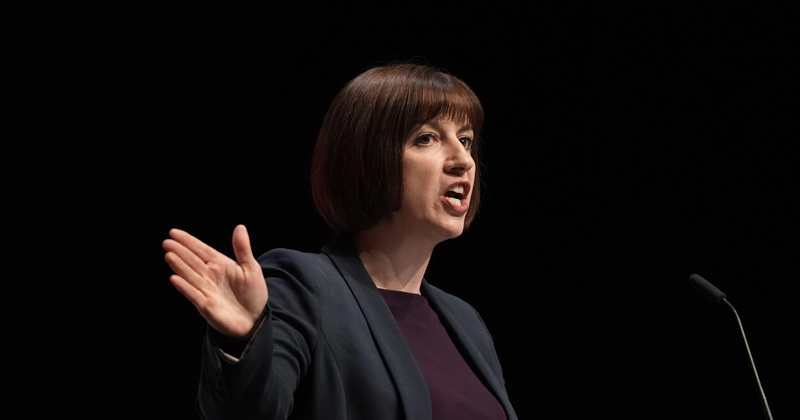The schools white paper will be delayed until “early in the new year”, government has announced today, as ministers take more time to draw up SEND reforms.
Government has consistently promised the white paper will be published in Autumn. Alongside SEND reforms, ministers had promised the paper would “lay the path for national renewal to take schools into the 2030s”.
However, education secretary Bridget Phillipson has told the education select committee in a letter today the white paper will now be published “early in the new year”.
“To help us deliver the most effective set of reforms we can, I have taken the decision
to have a further period of co-creation, testing our proposals with the people who
matter most in this reform – the families – alongside teachers and other experts as
you highlight in the select committee’s report,” Phillipson said.
“We will bring forward a full schools white paper early in the new year, underpinned by our belief that high standards and inclusion are two sides of the same coin.”
The committee had called for ministers to urgently set out its SEND reform thinking.
Parents of children with special needs were up in arms after one of the government’s inclusion advisers said scrapping education, health and care plans was under consideration as part of the reforms.
‘Ramped-up engagement’ promised
New schools minister Georgia Gould will lead the “ramped-up period of engagement with parents and experts”, a government source said.
Phillipson added the extra time will allow government to “test policy options being considered and seek views through listening sessions in every region of the country, and fortnightly ministerial meetings with key parent and expert groups.”
Details of these will be publicised.
“I will continue to listen directly to those working within the system, ensuring that our policy development is grounded in lived experience and fosters a culture of shared learning and constructive challenge,” Phillipson added.
It will also allow for wider sector reports on SEND reforms to be considered. For instance, the IPPR think tank is due to publish the findings from its own SEND taskforce tomorrow.
The Sutton Trust also published its own report earlier this month, and the children’s commissioner called for full EHCPs to be restricted to children with the most severe needs.
Phillipson added she is “more determined than ever to transform a system that is
letting down our children and look forward to continuing to work with you as we move
towards publication of our plans”.
The curriculum review will also still be published in the next few weeks, she added.
SEND principles revealed
In her letter, Phillipson revealed the SEND reforms will be underpinned by five principles, which have been shared today to “provide some clarity on the direction of our approach, and generate debate” about delivering a system that put youngsters with SEND back at the heart of the education system.
The principles are:
- Early: Children should receive the support they need as soon as possible. This will start to break the cycle of needs going unmet and getting worse, instead intervening upstream, earlier in children’s lives when this can have most impact.
- Local: Children and young people with SEND should be able to learn at a school close to their home, alongside their peers, rather than travelling long distances from their family and community. Special schools should continue to play a vital role supporting those with the most complex needs.
- Fair: Every school should be resourced and able to meet common and predictable needs, including as they change over time, without parents having to fight to get support for their children. Where specialist provision is needed for children in mainstream, special or Alternative Provision, we will ensure it is there, with clear legal requirements and safeguards for children and parents.
- Effective: Reforms should be grounded in evidence, ensuring all education settings know where to go to find effective practice that has excellent long-term outcomes for children.
- Shared: Education, health and care services should work in partnership with one another, local government, families, teachers, experts and representative bodies to deliver better experiences and outcomes for all our children.
Tom Rees, chair of the government’s expert advisory group on inclusion, said SEND reforms are “both the most important and the most complex policy area in education today. There is lots of appetite for change, and it’s important to take the time to get this right.
“Reform of this scale can’t be rushed and I welcome the additional time so that both the EAG and the government can continue to listen, develop and test ideas which build on the clear principles of reform set out by the education secretary today.”
Geoff Barton, who led the inclusion taskforce for the IPPR, added: “It’s such a contentious, fraught issue – in reality I’m quite pleased we’ve space to talk through the principles knowing the government is going to have to work through some really difficult stuff in the new year.
“The fact they are delaying shows the potential of these reforms to be the biggest education has had – making the system work for a lot more children. In order to do that, you need to get it right.”
The last SEND review was launched in September 2019 by Conservative education secretary Sir Gavin Williamson.
It took about three and half years – 1,274 days – to publish the SEND and AP green paper, but even then said nationwide rollout could be as late as 2026 after a trial period.
The latest delay means a child who started primary school when the previous review was launched will now be preparing for their key stage two SATs when Labour’s white paper is published.







Your thoughts